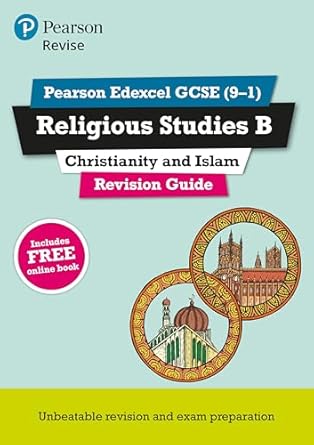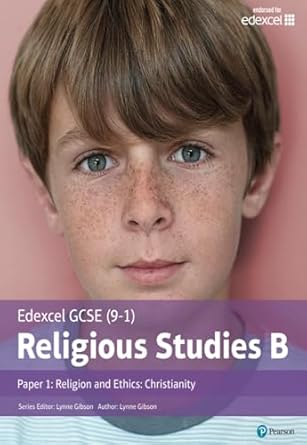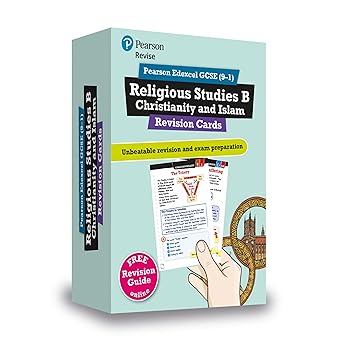Attributes of a Most Able Learner in Religion, Philosophy & Ethics
A Most Able learner in RPE will have a passion for trying to understand and make sense of the complex world we live in. With 85% of the world belonging to a religion, a Most Able RPE learner will want to inquisitively know what motivates these people socially, politically and of course, religiously.
In an increasingly turbulent age of unrest and conflict – a Most Able RPE learner will be engaged with both local and global current affairs and be able to draw links between current events and what they are learning in the classroom.
A Most Able RPE learner will be able to quickly draw links and comparisons between different religions and worldviews. These links will be regarding similarities and differences regarding key concepts but also beliefs and practices. They will be able to suggest possible reasoning behind these links and offer their own personal viewpoint in a careful and considerate manner.
In addition, Most Able learners will be able to critically evaluate key sources and words of authority relating to different religions and worldviews. RPE is a multidisciplinary subject. A Most Able RPE learner will also have a keen interest in other disciplines, in particular History, Politics, PSHCE and Geography. They will use the skills and knowledge they have gained in these areas and be able to apply this in the RPE classroom.
Learning Outside of the Classroom
Most Able learners in RPE will have a variety of interests outside of the classroom. They may visit a mixture of different places of worship out of intrigue and interest or as part of their own personal faith. Learners may also listen to religion and worldview related podcasts like Louisa Jane Smith’s ‘The RE Podcast’; they may follow religious leaders on social media eg @pontifex on X or even watch RPE related films or series like BBC’s – Pilgrimage. If financially able; some learners may visit important religious sites or places of pilgrimage within the local area, UK or even abroad.
Recommended Reading List
| Key Stage 3: | |
| Author: | Title: |
| John Bowker | ‘World Religions’ |
| DK | ‘The Illustrated Bible: from Creation to Revelation’ |
| Borin Van Loon | ‘Introducing Hinduism‘ |
| M Wilcockson | ‘Issues of Life and Death, Chapter 4 Euthanasia and Doctors’ Ethics, pp. 56–69’ |
| B Mitchell | ‘The Philosophy of Religion, 1st editionJ Mackie – Chapter 5 Evil and Omnipotence, pp.92-104’ |
| Ziauddin Sardar and Zafar Abbas Malik | ‘Introducing Islam: A Graphic Guide’ |
| D Wallace | ‘Big Fish’ |
| Y Martell | ‘Life of Pi’ |
| Julian Baggini | ‘The Pig that Wants to be Eaten’ |
| Cassandra Clare | ‘The Mortal Instruments’ |
| C.J. Sansom | ‘The Shardlake Series’ |
| Key Stage 4: | |
| Author: | Title: |
| L Ahmed | ‘Women and Gender in Islam: Historical Roots of a Modern Debate, Conclusion, pp. 235–248’ |
| M Khadduri | ‘War and Peace in the Law of Islam, Chapter 5 The Doctrine of Jihad, Chapter 6 Types of Jihad, pp. 55–82’ |
| Aristotle | ‘The Nicomachean Ethics, Book II, Moral Virtue, pp. 23–37 (Oxford World’s Classics edition, 1980)’ |
| Oscar Wilde | ‘The Picture of Dorian Gray’ |
| W Barclay | ‘Ethics in a Permissive Society, Chapter 4 Situation Ethics, pp. 69–91‘ |
| David Knott | ‘War Doctor‘ |
| Jonathan Sacks | ‘Not in God’s Name‘ |
| Stephen Law | ‘The Philosophy Gym‘ |
| Richard Dawkins | ‘The God Delusion‘ |
| Richard Dawkins | ‘The Blind Watchmaker‘ |
AQA Revision Guides for Key Stage 4
 |
 |
 |
 |
- REVISE Edexcel GCSE (9-1) Religious Studies B, Christianity and Islam Revision Guide
- Edexcel GCSE (9–1) Religious Studies B: Religion, Peace and Conflict – Islam Student Book
- Edexcel GCSE (9–1) Religious Studies B Paper 1: Religion and Ethics – Christianity Student Book
- REVISE Pearson Edexcel GCSE (9-1) Religious Studies B Christianity and Islam Revision Cards
How We Support Most Able Learners in Lessons
| Disciplinary Skill/Knowledge | Tailored Support |
Concepts
|
|
Interpretation
|
|
Personal Knowledge
|
|
What Can Parents/Carers Do To Support?
Parents and carers can nurture their child’s passion for RPE. This can be through thought provoking discussions and debates at home. Parents and carers can actively encourage their child to watch the news and for them to create their own personal opinion and viewpoint over current affairs and big issues.
If financially able; parents and carers could take their child to visit places of interest from museums, places of worship and historical religious sites locally and even globally.
Useful Websites
https://senecalearning.com/en-GB/blog/rs-gcse-podcasts-by-seneca
(REVISE GCSE Religious Studies – SENECA Learning Podcast)
https://open.spotify.com/show/7Cvsbcjhtur7nplC148TWy
(The Rest Is History – Podcast with top historians Tom Holland and Dominic Sandbrook)
https://www.therepodcast.co.uk
(THE RE Podcast – Podcast starring Louisa Jane Smith discussing many RPE related topics)
https://www.bbc.co.uk/bitesize/subjects/zmyb4wx
(BBC Bitesize – A useful website for an overview of key themes and concepts with helpful online quizzes)

